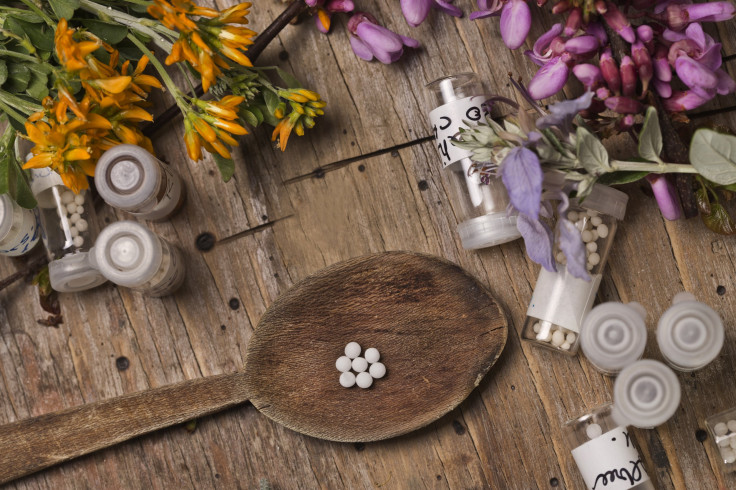FDA Reevaluates Homeopathy's Safety And Efficacy: Should The Pseudoscience Be More Rigorously Tested?

Homeopathy has long been a source of controversy in the medical world; as a form of alternative medicine that has no scientific backing, many doctors have been calling for stronger regulation. Now, the Food and Drug Administration (FDA) may review its regulation of homeopathy in an attempt to reel back potential dangerous side effects or poisonings.
The entire concept behind homeopathy — “like cures like” — is rather confusing, and some call it silly. If a substance causes symptoms of an illness, that same substance should be able to cure that illness. Homeopathy is generally considered pseudoscience, yet many people continue to swear by it.
According to the National Institutes of Health, some 3.9 million adults and 910,000 children used homeopathy in some way during 2007. But there is very little research to support people’s claims that the practice actually works. Most studies, in fact, have shown the opposite — that homeopathy isn’t effective in treating any conditions or illnesses. One recent study found that homeopathy did nothing to treat 68 different conditions.
Critics of homeopathy include most regular physicians, who claim that these remedies are ineffective and possibly dangerous. They’ve been trying to convince the FDA to regulate the practice better for years. Now, after a very long period of time since the FDA last produced some rules and regulations of the practice, the agency is planning on potentially revisiting it. A press release from the agency notes that for the next two days, the FDA will hold “a public hearing to obtain information and comments” about homeopathy — hoping to get a sense of what patients, doctors, health care workers, and consumers feel about it.
Currently, there is barely any regulation for homeopathic treatments; these products are placed alongside pharmaceutical staples like Tylenol at your local drug store. The FDA currently allows the sale of any homeopathic substance that’s listed in the Homeopathic Pharmacopoeia, a book that’s been around since the 1800s and is maintained by a nonprofit organization. But in recent years, as the popularity of these remedies increases in the U.S., there’s been a boost in poison calls and adverse side effects caused by them.
Homeopathy, also known as homeopathic medicine, was created in Germany over 200 years ago. In addition to the “like cures like” idea, homeopathy also embraces something called “law of minimum dose,” which claims that the lower the dose of medication, the better it will treat an illness. As a result, many homeopathic remedies are incredibly diluted — making them weak and likely useless. Typically, these remedies are made from plants, minerals, or animals — including but not limited to mountain herbs, red onions, crushed whole bees, white arsenic, and even poison ivy. While the doses are low, some of them still contain dangerous levels of toxic substances, such as the belladonna in Hyland’s Teething Tablets, which were flagged by the FDA as harmful to children.
Homeopathic physicians believe these remedies contain energy or memories. “We believe that there is a memory left in the solution,” Dr. Anthony Aurigemma, a homeopathic physician, told NPR. “You might call it energy. Each substance in nature has a certain set of characteristics. And when a patient comes who matches the physical, mental, and emotional symptoms that a remedy produces — that medicine may heal the person’s problem.” The medicines are often a combination of various substances, tailored to the individual and distributed as a pill, ointment, gel, cream, or drop.
If the FDA improves regulation for homeopathic treatments, it’s likely these unique and seemingly “natural” remedies won’t be as readily accessible as they are now. But perhaps it’s for the best.



























